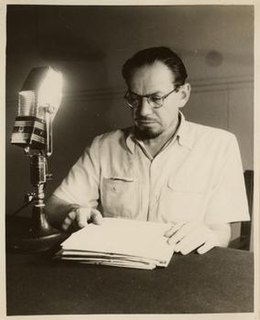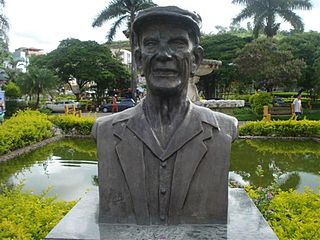A Quote by Thérèse of Lisieux
Jesus does not demand great actions from us, but simply surrender and gratitude.
Related Quotes
...I suddenly felt in myself all the weight of Europe: the weight of deliberate purpose in all our actions. I thought to myself, 'How difficult it is for us to attain to reality... We always try to grab it: but it does not like to be grabbed. Only where it overwhelms man does it surrender itself to him.
A prayerful life is the key to possessing gratitude. We often take for granted the people who most deserve our gratitude. Let us not wait until it is too late for us to express our gratitude. Feeling gratitude and not expressing it is like wrapping a present and not giving it. If I gratitude be numbered among the serious sins, then gratitude takes its place among the noblest of virtues. To express gratitude is gracious and honorable, to enact gratitude is generous and noble, but to live with gratitude ever in our hearts is to touch heaven.
The attitude of gratitude is yoga. Ingratitude is "unyoga," like "uncola." Where gratitude is, there is yoga. Where there is ingratitude, yoga is gone. That mind which does not live in gratitude is just like a junkyard. There are great cars there, but they don't work; they are useless, because they are junk. What are you without gratitude?
We sit down before the picture in order to have something done to us, not that we may do things with it. The first demand any work of art makes upon us is surrender. Look. Listen. Receive. Get yourself out of the way (there is no good asking first whether the work before you deserves such a surrender, for until you have surrendered you cannot possibly find out.
Humanly speaking, it is possible to understand the Sermon on the Mount in a thousand different ways. But Jesus knows only one possibility: simple surrender and obedience - not interpreting or applying it, but doing and obeying it. That is the only way to hear his words. He does not mean for us to discuss it as an ideal. He really means for us to get on with it.
Of course, none of this can happen for us until we give our lives back to God. We cannot know the joy or the life or the freedom of heart I've described until we surrender our lives to Jesus and surrender them totally... We turn, and give ourselves body, soul, and spirit back to God, asking him to cleanse our hearts and make them new. And he does. He gives us a new heart. And he comes to dwell there, in our hearts.
Let us not demand of ourselves that we alone must be the agent of change. In a fire brigade everyone passes along a bucket, but only the last person puts out the fire. None of us know where we stand in line. We may be here simply to pass a bucket; we may be called on to play a major role. In either case, all we can do is think, act, and say. Let us direct our thoughts, words, and actions to peace. That is all we can do. Let the results be what they will be.
The Christian faith, simply stated, reminds us that our fundamental problem is not moral; rather, our fundamental problem is spiritual. It is not just that we are immoral, but that a moral life alone cannot bridge what separates us from God. Herein lies the cardinal difference between the moralizing religions and Jesus' offer to us. Jesus does not offer to make bad people good but to make dead people alive.
Gratitude is the creative force, the mother and father of love. It is in gratitude that real love exists. Love expands only when gratitude is there. Limited love does not offer gratitude. Limited love is immediately bound by something- by constant desires or constant demands. But when it is unlimited love, constant love, then gratitude comes to the fore. This love becomes all gratitude.









































